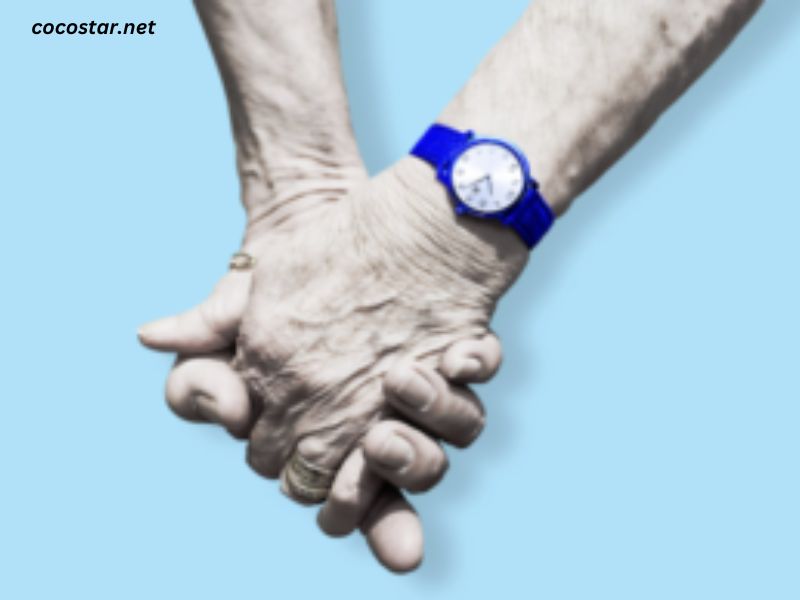In today’s world, language evolves rapidly, and new slang terms often surface in pop culture, social media, and daily conversations. One such phrase that has gained traction recently is “big back.” This term has various meanings depending on the context in which it’s used, ranging from physical descriptions to expressions in music, fashion, and even sports. In this article, we’ll break down what “big back” means, how it’s used in different contexts, and why it has become such a prominent term in popular culture.
The Literal Meaning: A Physical Description
At its most straightforward, the term “big back” is a physical description referring to someone who has a notably large back. This could be in terms of width, muscularity, or overall size. For example, in the fitness community or among bodybuilders, the term might be used to describe someone with a broad and muscular back, which is often a symbol of strength. People with large, muscular backs typically have developed latissimus dorsi muscles (often referred to as lats) that give the back a broad and powerful appearance.
In certain cultures, physical strength, represented by a “big back,” is often admired. In this context, the phrase might be used in a positive sense to compliment someone’s physique, especially if their back has been developed through intense weightlifting or athletic training.
Example:
- “Did you see James at the gym today? That guy’s got a big back!”
“Big Back” in Music and Pop Culture
While the term “big back” can describe physical features, it has also found its place in the world of music and pop culture, particularly in hip-hop and rap songs. In these genres, phrases like “big back” often take on a more metaphorical meaning, sometimes referring to wealth, status, or even confidence.
Hip-Hop Influence: A Symbol of Wealth and Confidence
In the world of hip-hop, a “big back” could symbolize a lavish lifestyle or a person’s ability to live large. For example, artists who flaunt expensive clothing, cars, or jewelry might refer to their “big back” as a metaphor for their success and the lifestyle they enjoy. The phrase becomes a part of the lyrical vocabulary to convey power, wealth, and self-assurance.
Rap lyrics often include references to physical attributes like body shapes, and “big back” can be used as a term to describe a woman who is curvy or has a large, attractive posterior. This usage aligns with the cultural trends in rap music, where artists frequently celebrate women with fuller figures. Here, a “big back” may refer to a woman with a fuller, curvier body type that is celebrated and admired.
Example:
- In songs by artists like Cardi B or Megan Thee Stallion, phrases like “big back” may be used to describe women with curvy, fuller figures, reinforcing a sense of empowerment and body positivity.
“Big Back” in Fashion and Social Media
The phrase “big back” has also made its way into the fashion and social media realms, where it is sometimes used to describe a fashion trend that emphasizes larger or more pronounced backs. This is often seen in the context of body positivity and embracing different body types.
On platforms like Instagram, TikTok, and Twitter, “big back” is often used by influencers, models, or celebrities to describe and celebrate their fuller, more muscular or curvaceous backs. Social media users often embrace the phrase, posting pictures of themselves proudly showcasing their backs, whether it’s a muscular physique or a fuller body type.
In the fashion world, the term “big back” can also refer to clothing choices that highlight the back, such as backless dresses, low-cut shirts, or items that expose or accentuate the back. These fashion trends have gained popularity, with many designers embracing larger or more sculpted backs as a statement of beauty and strength.
Example:
- A fashion influencer might post a picture on Instagram captioned, “Big back, big confidence,” showcasing her back in a form-fitting dress or a casual outfit that highlights her physique.
“Big Back” in Sports and Fitness
In sports, particularly in bodybuilding, weightlifting, and athletics, a “big back” is often an aspirational goal. Many athletes focus on building a strong back because it is essential for performance in numerous sports. In weightlifting, a powerful back helps with lifting heavier weights, while in sports like football and rugby, a muscular back aids in tackling and overall strength. For many athletes, achieving a “big back” is a sign of strength, power, and dedication.
In sports discussions or among fans, the term “big back” might be used to refer to a player who is physically strong, particularly in sports that require strength and power in the upper body. For example, in American football, a linebacker with a big back might be admired for his strength and presence on the field.
Example:
- “That linebacker has such a big back; he’s a powerhouse on the field.”
The Internet Slang: “Big Back” as a Compliment
On the internet, particularly in meme culture and among younger social media users, the phrase “big back” is sometimes used as a playful compliment or an expression of admiration. For example, when someone posts a picture of themselves or their friend with a noticeable physique, others might comment “big back” as a way of highlighting their impressive body. This usage can be both humorous and positive, as it focuses on a person’s strength or physique.
In the context of online commentary, particularly in meme videos or reaction gifs, “big back” can also be used to describe a person or character who has an impressive or exaggerated physical trait. This can be seen in videos where people highlight someone’s strength or physical prowess as a way to celebrate or exaggerate the characteristic in a humorous way.
Example:
- “When you finally bench press your body weight and your friends call it a ‘big back’ moment.”
The Changing Meaning of “Big Back” in Popular Culture
The evolving meaning of “big back” in modern culture reflects changing ideals about beauty, strength, and identity. Once largely associated with bodybuilding and athleticism, the term has expanded into pop culture, music, social media, and even meme culture, where it takes on different meanings depending on who uses it and in what context.
The growing acceptance and celebration of different body types have played a significant role in how “big back” is used. While the phrase once referred exclusively to muscularity or sheer physical size, it has now come to represent an embrace of fuller, more diverse body types—whether through the celebration of curvier figures in pop culture or the admiration of strength and power in fitness circles.
How “Big Back” Reflects Body Positivity and Changing Standards
One of the most significant cultural shifts in recent years is the growing emphasis on body positivity. Terms like “big back” are used more frequently in positive, empowering contexts to celebrate all types of bodies, from muscular physiques to curvier figures. This reflects a broader cultural movement that encourages people to embrace their bodies, no matter their size or shape.
In the past, mainstream media tended to glorify slim or overly lean body types, but now, there’s an increasing recognition that beauty comes in many forms. “Big back” has become one of the ways people are choosing to redefine beauty standards and embrace their own unique qualities.
Example:
- Celebrities like Kim Kardashian, Beyoncé, and Rihanna have been at the forefront of this cultural shift, with their larger-than-life personas and celebrations of their fuller, curvier bodies. Through their influence, the term “big back” has taken on a more positive, celebratory tone.
Conclusion
The term “big back” has evolved from a simple physical description to a widely used phrase with multiple meanings across various contexts. Whether in music, fashion, fitness, or social media, “big back” has taken on different connotations, from signifying strength and muscularity to celebrating diverse body types. As culture continues to evolve, so too will the meaning of phrases like “big back,” reflecting our changing views on beauty, strength, and identity.
In today’s world, language is fluid, and terms like “big back” provide insight into how we view ourselves and others in a constantly shifting cultural landscape.



